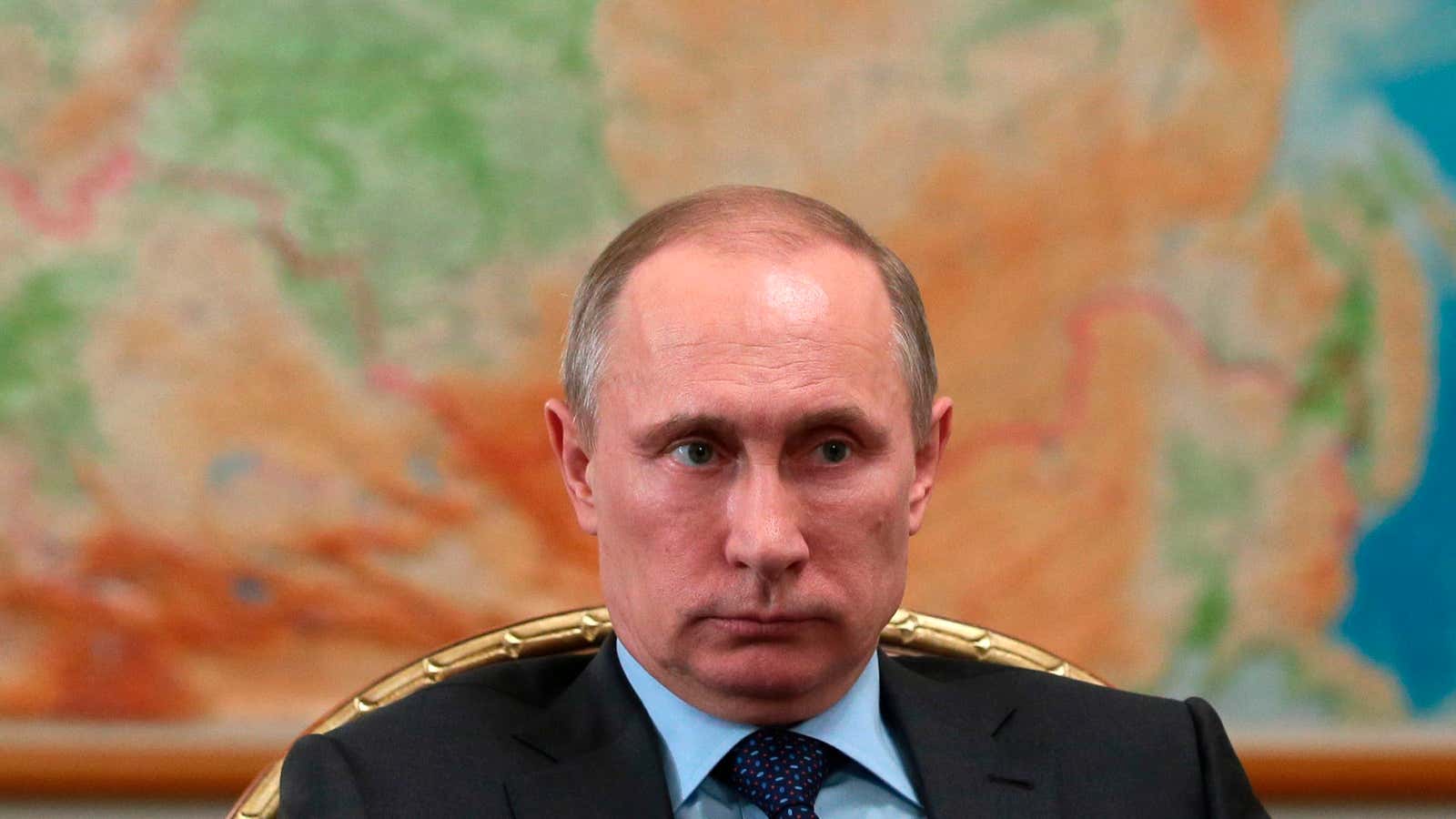The fog of war is not only a pernicious malady of conflict, but a potential strategic advantage. So it seems in Crimea, where gunmen largely shorn of insignia but with the behavioral, sartorial and technological fingerprints of Russian soldiers are controlling strategic assets including roads, airports and, reportedly, a TV station. Are they part of what a Ukrainian official says is an invasion of 2,000 Russian troops? Or perhaps forces under a Russian vice-admiral who reportedly assembled his junior offices and declared, “We are beginning a war with Ukraine”?
As underscored by the pleas and warnings flying from Western capitals, the main fear is that Russia will invade Ukraine. In reply, Russian officials have reassured the world again and again that they will not militarily intervene. Russian president Vladimir Putin himself says he will work together with Western countries to assemble a financial aid package for Ukraine. “I am not commenting. This is all rubbish,” his spokesman replied when asked whether Putin is secretly orchestrating the trouble in Crimea.
A lot of people, including the acting Ukrainian leadership, think it is not rubbish. After the actions of those unknown gunmen in Crimea, Washington, suspecting that they are in fact Russian soldiers, told Moscow that any intervention would be a “grave mistake.” The UN Security Council took up the question, too. Russia finally confessed to moving some troops outside its naval base in Sevastopol, but says that is just to conduct necessary patrols.
So what is Russia playing at? One possible answer is that this is the inevitable result of the fact that the uprising that pushed Ukrainian president Viktor Yanukovych out of power came while the Winter Olympics in Sochi were under way. Under normal circumstances, Putin might have intervened to help quash such an uprising, which threatens to take Ukraine—a country with which Russia has close historical, cultural and political ties—out of the Russian sphere of influence and into that of the European Union. But as we wrote a few weeks ago, he couldn’t be seen to meddle in Kiev while the Olympic spotlight was upon him. Now, with the strategic relationship with Ukraine under threat, Putin likely feels humiliated and wants to claw something—anything—back.
Longer term, it seems likely that Russia seeks to keep Ukraine permanently off-balance, giving Moscow leverage with Kiev and the West, and complicating any closer ties that Ukraine seeks to cultivate with the EU. This is a strategy Russia has followed before in relation to other post-Soviet neighbors (especially Georgia), as Carl Bildt, Sweden’s foreign minister, suggested in a tweet:
Whatever the real reason, the confusion works to Russia’s advantage.
